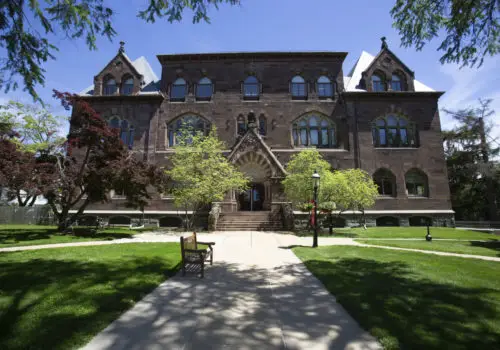Princeton Theological Seminary is undertaking a number of measures to acknowledge the role that slavery played in its history.
Last week, the Seminary Board of Trustees announced the implementation of a policy plan costing it around $27.6 million to repent for its ties to slavery.
Last year, a two-year audit revealed that Seminary benefited from the slave economy and from donors who profited from slavery. It also revealed that founding faculty and leaders used slave labor at some point in their lives
“The report was an act of confession,” said John White, dean of students and vice president of student relations.
“These responses are intended as acts of repentance that will lead to lasting impact within our community. This is the beginning of the process of repair that will be ongoing,” he added.
Stepping up: Princeton Theological Seminary will set aside more than $25 million to pay reparations for its historical ties to slavery, thrusting the seminary to the forefront of a national debate over how America’s should reconcile with its slave-owning past. pic.twitter.com/ayuF82HSEr
— Unheard Voices Magazine (@unheardvoices) October 23, 2019
The seminary is starting 30 new scholarships and designating five doctoral fellowships for descendants of those persons once enslaved, appoint a full-time director of the Center for Black Church Studies and faculty member to research on African American experience and ecclesial life.
The school will also make changes to its curriculum and rename the library after Theodore Sedgwick Wright, the first African American to attend and graduate from Princeton Seminary.
“The Seminary’s ties to slavery are a part of our story. It is important to acknowledge that our founders were entangled with slavery and could not envision a fully integrated society,” said Princeton Seminary President M. Craig Barnes.
Last year, Furman University had acknowledged its historical ties to slavery and racism. Later it removed “James C.” from James C. Furman Hall, and announced that it will build a statue to honor Joseph Vaughn, the school’s first black student.
Similarly, Georgetown University students had proposed creating a fund to benefit the descendants of 272 slaves who were sold in 1838 to pay off the university’s debts. The university is still sitting on recommendations made by its Working Group on Slavery, Memory, and Reconciliation in 2016.
Furman University Acknowledges Historical Connections to Slavery



